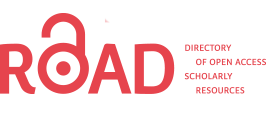About the Journal
Focus and Scope
The Review of Freres Mentouri University of Constantine is a set of academic periodicals whose main objective is the publication of scientific research work by academics. It is dedicated to mathematics, physics, chemistry, engineering sciences, nature and life sciences, Earth Sciences, Architecture and Planning.
The periodical accept original writings in English pertaining to fundamental as well as applied research. It’s intended as a forum for sharing ideas and experiences with other national and foreign academic institutions; as an instrument of dialogue and exchange between academics; and as a dynamic arena dedicated to the development and promotion of academic research.
Peer Review Process
The peer review process
Once the article has been sent to the Publications Directorate by the authors (three copies plus one CD), the authors will receive a letter confirming the receipt and registration of their article where a code has been assigned.
The expertise of this article is transmitted under the anonymity (code) to two experts of magisterial rank (MCA or Pr.) Chosen among the list of experts which counts the database (2651) by introducing the keywords and thematic . Two experts will be chosen according to this list by excluding the peers that belong to the institutions of the authors.
Scorecards play two important roles in the publication process:
Quality control
The evaluation sheets allow the editor to make the decisions to preserve the quality of the journal based on the expertise namely the relevance, originality and validity of the content of the article.
Constructive criticism
Evaluation expertise provides constructive feedback and clear suggestions for directing authors to remove their concerns and improve their article (in the event of a review).
In fulfilling this dual mandate, the expert who agrees to evaluate an article is of service to the journal and the authors of the article, but also to its scientific community more generally (since it will read better articles and will be pushed to do the best scientific work to surpass what already exists).
It may be flattering to receive a request for article evaluation from a prestigious journal or conference in its field of research, especially the first few times. Sometimes the first requests of this kind come from the thesis director, who delegates his own evaluation assignments. In both cases, it shows some recognition of the expertise accumulated over the years, which is not unpleasant.
In the academic world, carrying out evaluation mandates is part of the life of most researchers. This is a privilege, as the evaluator has the chance to learn about new ideas in his field even before they are published, but it is primarily a responsibility. Generally, it is also an unpaid task. Researchers who agree to evaluate articles generally do so because they consider that they contribute to a collective effort that is crucial to maintaining the overall quality of the articles they read and use in their research. It is also a way of giving back to the community what they receive each time they submit an article in a magazine or conference.
Accepting to evaluate an article therefore represents a certain commitment to the scientific community in general and authors in particular. For this reason, experts are asked to:
To be competent enough
To have the time and respect the deadlines
Respect the confidentiality rules
Stay anonymous
Avoid conflicts of interest
Open Access Policy
This journal provides immediate free access to its content based on the principle that making research available to the public free of charge facilitates a greater exchange of knowledge, on a global scale.
Ethics and malpractice statement
PUBLICATION ETHICS
The publication of an article in a peer-reviewed journal is an essential model for our journal « Sciences & technology A”.
In order to provide our readers with a journal of highest quality, we state the following principles of Publication Ethics and Malpractice Statement.
Our ethic statements are based on COPE’s Best Practice Guidelines for Journal Editors.
It is necessary to agree upon standards of expected ethical behaviour for all parts involved in the act of publishing: Editors, authors, and reviewers.
The Journal of Sciences & technology is fully committed to good publication practice and assumes the task of fulfilling the following duties and responsibilities.
1- Duties of the editor
Publication decisions: The Editor-in-Chief of the journal is responsible for deciding which of the articles submitted to the journal should be published. The editor may be guided by the editorial policies of the journal and constrained by such legal requirements as shall then be in force regarding libel, copyright infringement, and plagiarism. The editor may confer with the members of the Editorial Board or reviewers in making this decision.
Fair Review: The Editor-in-Chief ensures that each manuscript received is evaluated on its
intellectual content without regard to race, gender, religious belief, ethnic origin, citizenship, or political philosophy of the authors.
Confidentiality: The Editor-in-Chief, the members of the Editorial Board and any editorial staff must not disclose any information about a submitted manuscript to anyone other than the authors of the manuscript, reviewers, potential reviewers, other editorial advisers, and the publisher, as appropriate.
Disclosure and conflicts of interest: Unpublished materials disclosed in a submitted manuscript will not be used in the research of the Editor-in-Chief or that of the members of the Editorial Board without the expressed written consent of the author.
2- Duties of reviewers
Contribution to Editorial Decisions: Peer review assists the Editor-in-Chief and the Editorial Board in making editorial decisions, and the editorial communications with the author may also assist the author in improving the paper.
Promptness: A selected referee who feels unqualified to review the research reported in a manuscript or knows that its prompt review will be impossible should notify the editor and decline to review the paper.
Confidentiality: The manuscripts received for review will be treated as confidential documents. They will not be shown to or discussed with others except as authorized by the editor.
Standards of Objectivity: Reviews should be conducted objectively. Personal criticism of the author is unacceptable. Referees should express their views clearly with supporting arguments.
Acknowledgement of Sources: Reviewers should attempt to identify relevant published work that has not been cited by the authors. Any statement that a result or argument has been previously reported should be accompanied by the relevant citation. A reviewer should also call to the editor's attention any substantial similarity or overlap between the manuscript under consideration and any other published paper of which they have personal knowledge.
Disclosure and Conflict of Interest: Privileged information or ideas obtained through peer review must be kept confidential and not used for personal advantage. Reviewers should not consider manuscripts in which they have conflicts of interest resulting from competitive, collaborative, or other relationships or connections with any of the authors, companies, or institutions connected to the papers.
3- Duties of authors
Reporting standards: Authors should accurately present their original research, as well as
objectively discuss its significance. Manuscripts are to be edited in accordance with the submission guidelines of the review. Authors are also responsible for language editing before submitting the article. Underlying data should be represented accurately in the paper. A paper should contain sufficient detail and references to permit others to replicate the work. Fraudulent or knowingly inaccurate statements constitute unethical behaviour and are unacceptable.
Originality and Plagiarism: The authors should ensure that they have written entirely original works, and that the work and/or words of others have been appropriately cited or quoted if the authors have used them. The Journal of Sciences & technology reserves the right to use plagiarism detecting software to screen submitted papers at all times.
Multiple, Redundant or Concurrent Publication: An author should not in general publish
manuscripts describing essentially the same research in more than one journal or conference.
Submitting the same manuscript to more than one journal constitutes unethical publishing behavior and is unacceptable.
Data Access and Retention: Authors should retain raw data related to their submitted paper and must provide it for editorial review upon request of the Editor-in-Chief.
Disclosure and Conflicts of Interest: All authors should disclose in their manuscript any financial or other substantive conflict of interest that might be construed to influence the results or interpretation of their manuscript. All sources of financial support for the project should be disclosed.
Authorship of the Paper: Authorship should be limited only to those who have made a significant contribution to conceiving, designing, executing and/or interpreting the submitted study.
Acknowledgement of Sources: Proper acknowledgment of the work of others must always be given. Any work or words of other authors, contributors, or sources should be appropriately credited and referenced.
Fundamental errors in published works: When an author discovers a significant error or inaccuracy in his or her own published work, it is the author’s obligation to promptly notify the journal editor or publisher and cooperate with the editor to retract or correct the paper.






